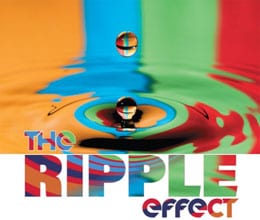“YOU CANNOT ESCAPE THE REPSONSIBILITY OF TOMORROW BY EVADING IT TODAY” – ABRAHAM LINCOLN
We are seeing an uptick – and a healthy one at that- of crime in California. I’m hearing from rental companies, contractors, friends and neighbors the same thing: “Am I nuts or is there more crime these days?!” Well, you’re not nuts. Crime IS on the rise (and will likely get worse before it gets better!) and it’s leaving the victims feeling more and more, well, victimized.
Criminals are getting more brazen with how and when they commit crimes. They have wised up to new laws, shortened jail time, the difficulty prosecutors have putting them in jail in the first place, new ways to commit fraudulent transactions, and are taking notice that for some time now, many people aren’t taking the time to report their losses. It’s my guess that they know the frustration many victims feel about taking time out of their day to file a report, only to hear that the culprit is back on the streets within days, if not hours. California is seeing an increase in work to be done with fewer resources to tackle that work, creating opportunities for many to capitalize on.The Bad Guysare doing all they can to capitalize on these opportunities, too.
Reporting acrimemight be time consuming but it’s important to consider the ripple effect that filing (or not filing) your report can have. Taking the time to complete a police report is important not just so you can file an insurance claim, but to increase the likelihood of your equipment finding its way back to you. It establishes information that helps create statistics allowing for appropriate funding for the men and women who protect and serve all of us.
When a crime is reported, the information within that one report can:
- Increase the chances of your equipment being recovered and returned to you
- Make it possible to file an insurance claim
- Identify crime patterns (in your community and beyond)
- Identify theft trends
- Establish appropriate funding and how it should be allocated
- Better train, prepare and protect our law enforcement officers
- Help prevent future crimes
When we choose to not report a crime – for whatever reason – we are, in essence, allowing the bad guys to control not only the immediate situation, but also waving a white flag and inviting them to continue to take advantage of our hard work. We are inadvertently saying that, although we aren’t happy with being victimized, taking a stand to file a report and actually fight the crime, isn’t a priority. We are sending a message to employees and those around us that we won’t take the time to hold anyone accountable for equipment in their possession that goes missing. We are accepting that theft is just another cost of doing business. While, to a certain extent, that’s true, it’s also a cost that has increased dramatically in recent years and our attitudes could use an adjustment in what is deemed acceptable. The complacency that has become commonplace when it comes to reporting crimes – whether out of frustration, necessity or both – needs to change to better protect all that we value.
When enough crimes go unreported in a community, over time, funding for the agencies, programs and officers that protect us, will decrease. That equates to fewer dispatchers, officers and overall resources to handle all crimes. This will, eventually, result in it taking even longer for a call for help to be answered. Reporting your theft isn’t always just about you and your specific loss. It’s about doing all that is within your power to keep the initial splash of your crime from becoming far-reaching ripples of consequence that have the potential to leave a lasting mark on all of us.

Leave a Reply